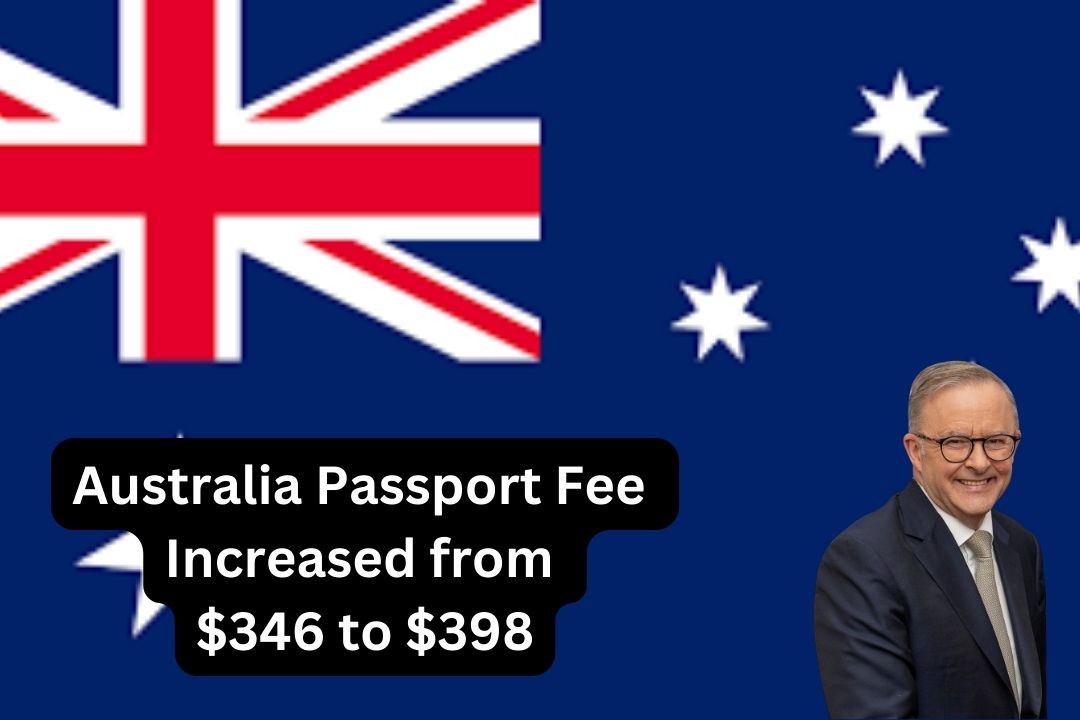On July 1, 2024, Australian passport fees will increase significantly. This adjustment, announced in the 2016 government budget, makes Australian passports the most expensive in the world, exceeding those in Mexico, the United States, New Zealand, and Italy.

Australia Passport Fees Increased
According to Compare the Market, this fee increase propels Australian passports to the global cost rankings. This hefty hike adds additional cost to foreign trip plans for many Australians. Despite the higher fees, the government believes the change is appropriate and essential. Foreign Minister Penny Wong acknowledged the unpopularity of the rise but justified it as a sensible measure.
In addition to the fee increase, the government has implemented a new option for expedited passport processing. Starting July 2, Australians can pay an extra $100 to have their passports processed within five working days. This new service seeks to give travelers greater flexibility if they need their documents urgently but do not want the rapid turnaround offered by the current priority processing option.
Current processing times and available priority options
According to the Australian Passport Office, it now takes about six weeks to obtain a new passport or renew an existing one. For individuals who need their passports immediately, there is currently a priority processing option that guarantees delivery within two business days. However, this expedited process costs $252 plus the basic passport fee. Introducing a five-day fast-track option offers tourists a midway ground between cost and urgency.
Financial Implications and Public Reaction:
The hike in passport fees has elicited a mixed response among Australians. For frequent travelers and those planning overseas vacations, the increased fee adds to an already long list of travel expenses. While some regard the rise as a necessary part of government budgeting, others perceive it as an additional financial burden. The extra price raises concerns about the affordability and accessibility of overseas travel for the average Australian. With the cost of living rising and economic strains mounting, the higher passport fee adds another cost for families and people.
Government Justification and Economic Context:
The government believes that the fee increase is essential to ensure the long-term viability and efficiency of passport services. The hike is a more significant effort to control the costs of issuing safe travel papers and maintaining reliable passport services. The increased cash generated by the fee increase will likely be used to improve the infrastructure and technology that supports passport issuance and processing.
Effect on Australian Travelers:
For Australians wanting to travel abroad, the higher passport fee is a paramount concern. The increased $398 price and the potential additional costs for faster processing imply that tourists must budget more carefully for their journeys. This cost increase may also influence Australians’ decision-making about overseas travel, potentially leading to more selective travel plans or a greater emphasis on domestic tourism.
Comparing International Passport Fees:
When compared to other countries, Australia’s new passport price stands out. A passport is substantially less expensive in Mexico, and expenses are lower in the United States, New Zealand, and Italy. This gap underlines Australian tourists’ unique status, as they now face the highest passport expenses in the world. This contrast also contributes to the argument over the justice and necessity of the cost hike, generating talks about alternate funding mechanisms for passport services.
Related Post
Thinking beyond:
As the new passport cost takes effect, the long-term impact on Australian travel habits and government revenue will become more apparent. The cost rise is projected to impact the budget considerably, but it also presents issues for travelers. Introducing the five-day fast-track processing option provides some respite, providing more options for people who require their passports quickly.
To summarize, the hike in Australian passport fees represents a substantial shift in the country’s travel scene. While the government defends the increase as a necessary measure, it adds to the financial burden for Australians planning trips abroad. Implementing new processing alternatives tries to balance these expenses with increased flexibility, reflecting the government’s efforts to manage economic responsibilities and public requirements.